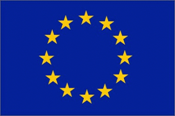ESROCOS (OG1)
European Space Robot Control Operating System
The goal of the ESROCOS project is to provide an open source framework which can assist in the development of flight software for space robots. By providing an open standard which can be used by research labs and industry, it is expected that the Technology Readiness Level (TRL) can be made raised more efficiently, and vendor lock-in through proprietary environments can be reduced.
| Duration: | 01.11.2016 till 31.01.2019 |
| Donee: | German Research Center for Artificial Intelligence GmbH |
| Sponsor: | European Union |
| Partner: | GMV Aerospace and Defence, Université Grenoble Alpes, Katholieke Universiteit Leuven, Airbus Defence and Space Deutsches Zentrum für Luft und Raumfahrt e.V., GMVIS SKYSOFT, INTERMODALICS, Institut Supérieur de l'Aéronautique et de l'Espace, VTT Technical Research Centre of Finland Ltd |
| Application Field: | Space Robotics |
| Related Projects: |
SARGON
Space Automation & Robotics General Controller
(01.2016-
12.2017)
InFuse (OG3)
Common Data Fusion Framework for Space Robotics
(11.2016-
01.2019)
|
| Related Software: |
Rock
Robot Construction Kit
|
Project details
Current state-of-the-art robotic frameworks used in robotics reasearch are already addressing some of these key aspects, but mostly fail to deliver the degree of quality expected in the space missions. In the industrial robotics world, manufacturers of robots realise their RCOS by complementing commercial real-time operating systems, with proprietary libraries implementing the extra functions. While this serves the scope of selling robotic systems and applications, it does not provide for a standard for integration of systems and algorithms across multiple vendors.
The PERASPERA OG1 activity is devoted to the design of a Robot Control Operating Software (RCOS) that can provide adequate features and performance with space-grade Reliability, Availability, Maintainability and Safety (RAMS) properties.
Therefore the ESROCOS proposal aims to develop a system with the following main objectives:
- Develop a Space-oriented RCOS: ESROCOS shall target space development needs by including space-grade RAMS attributes (refer to ESA ECSS standards) and off-line/on-line formal verification, Telemetry and Telecommand (TM/TC) messages and qualification of industrial drivers such as the Controller Area Network (CAN) bus or EtherCAT protocols. Two reference implementations shall be carried out on space representative avionics.
- Integrate advanced modelling technologies: ESROCOS shall include complete model- based methodology supporting the design of the individual components as well as the interfaces for their interaction and integration, the verification of the structural and behavioural properties at the system level, and a framework that also provides glue code generation. This approach allows the separation of the model from the target platform, which is a requirement for the reuse of the software in future developments
- Focus on the space robotics community: ESROCOS requirements will be consolidated by actors leading state-of-the art robotics space missions.
- Allow integration of complex robotics applications: ESROCOS shall provide a flexible architecture, following the Time and Space Partitioning and mixed-criticality approach, which also allows hosting different level of space quality applications over the same on-board computer.
- Avoid vendor-lock in situations: The outcome of the proposal is to be delivered as open- source code (Mozilla Public License, Apache, MIT, BSD and GPL/LGPL), avoiding proprietary solutions (VxWorks, PykeOS) that can have difficulties in being adopted,
- Leverage on existing assets: Instead of starting from scratch, ESROCOS shall enhance already existing frameworks (TASTE extended with a robotics components approach inspired by the Rock middleware), mature toolsets (source-code versioning, scripting/testing, visualizers/simulators) and libraries (advanced data types, robotics transformations of reference systems, robotic arm kinematics and dynamics, rover locomotion control)
- Ease the development of robotics systems: ESROCOS shall be interoperable with other robotics frameworks (e.g. Rock/ROS 3 rd party libraries and visualizers/simulator) allowing testing their algorithms together with space critical components
- Cross-pollinate with non-space solutions and applications: ESROCOS shall benefit from the experience gathered in developing RCOS for robots in nuclear environment, with very stringent RAMS requirements
Videos
Field Trials Morocco: EU partner test new software with DFKI rover SherpaTT

The objective of the Strategic Research Cluster (SRC) on Space Robotics Technologies funded by the European Union is to enable major advances in space robotic technologies. Among others, these technologies are needed for future robotic missions to explore the surfaces of Mars, Moon and other celestial bodies. At the first stage of the SRC implementation (2016–2019), several research & development projects ("operational grants") established core technologies for space robotic systems. Since lab environments cannot adequately simulate the harsh environmental conditions a space exploration robot will be confronted with, field tests in terrestrial Mars or Moon analogues are imperative.
ESROCOS: European Space Robot Control Operating System

The goal of the ESROCOS project is to provide an open source framework which can assist in the development of flight software for space robots.

